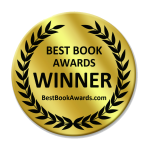I received The Dictionary of Obscure Sorrows for Christmas, and absolutely love it.
It’s a little book with a huge personality.
It’s powerful in its scope.
It explains so much, even gives…substantiality to…many of the odd feelings I have and have had over the course of my life.
The Dictionary of Obscure Sorrows (TDoOS) is a project by John Koenig. His incredible book coins and defines neologisms for emotions that just haven’t had any concrete descriptions in our language, perhaps in most languages. All neologisms are created by Koenig through an exhaustive etymological research, as well as an analysis of the meanings of prefixes, suffixes, and word roots. The listed terms are often based on “feelings of existentialism” and are meant to “fill a hole in the language” that has, curiously, also involved reader input! How cool is that? His project/dictionary started out as a website and YouTube Channel (YTC), but ended up as a book—which is great, because I’m just not into watching videos and love reference books.
Plus, it’s a book and not just digital.
I much prefer to read faster than a video plays out. Herr Koenig’s site includes entries like a regular dictionary, while the YTC attempts to visually express these meanings (cause, you know, that’s what YouTube does…). Some of his videos involve large collages of photographs (e.g., “Vemödalen” which uses an almost exhausting, seamless, fusion of hundreds of similar photographs from multiple photographers). Others involve collages from his own life (e.g., “Avenoir“).
Wikipedia says the YTC tries to do this “more thoroughly,” which I initially find tritely generational in description and should probably be included in his book, if it already isn’t, but as I view his videos…holy cow…how utterly powerful they are…how they freaking effect me. Grab me by my soul and even cause me to tear up, in some circumstances. It’s like I’m viewing my own life on video.
In watching videos versus reading words there is not only the employment of words and visuals…there’s the employment of tone. The narrator’s voice. How it is inflected, how s/he adds emotion to his words. There is much that is added by the proper narrator. John is voice actor and man, does he nail it. This is one guy I really, really want to meet. In person.
So, TDoOS takes from both platforms and employs both dictionary and essay styles.
I love what this project has done, and how it’s done, because not only does it gives me new and cooler—powerfully, effectually, atmospheric—words to employ in my writing, but that it also shows that I’m not alone in these obtuse, obscure, even metaphysical feelings:
I’ve had and have many of these feelings across the timespan of my life.
Maybe there’s a term’s for that, too.










Having a rare person connect so powerfully with a lonely part of you must be incredible! I say lonely because I know you don’t meet people every day that can relate to how you see the world. This book and channel sound sound fascinating.
Wow, incredible analysis, Karen!
While I don’t consider myself “lonely,” perhaps there is, as you say, a “lonely part” involved, in that I feel the world is going crazy and that I severely wish that Humanity can see what I see. It has nothing to do with “I’m the only one with the answers,” as it is that if people see what I see in Life, the Universe, and Everything, there would be no wars. No injustices. No “evil.” It’s what others also see…I’m just spelling it out, here, whereas others think the same thing, but keep it to themselves. Sadly.
So, yes, there is a deeply perceptive truth to the nuance of your word choice, Karen. I applaud you!
But, to dig a little deeper:
I don’t feel one has to be “lonely” (wholly or in part, for any reason) to appreciate this work. One merely has to be any form of introspective. Or, at the very minimum, HUMAN. I’m not convinced the given title is apt for this work. It’s far more expansive than “loneliness” or “sorrows,” and I feel the title actually imparts a disservice to the content. I haven’t completed reading the book, but it is NOT about sorrow, let alone OBSCURE sorrows. It’s about the metaphysics of Life. The acknowledging of the “in-betweenisms of Life” all or most of us–at one time or the other–[must] have considered…when in an empty room that had, at one time, been full of laughter and energy and love and people…but isn’t AT THE MOMENT…or wanting to live your life backward and live your future memories NOW.
That is not sorrow. It’s introspection.
It’s coloring outside the lines.
Looking “between and around.”
I am always looking between and around all that I see. At the behavior people exhibit to me (and why people are mean to others) to the global events that transpire. Have transpired. Will transpire. Have other probabilities of transpiring. Even what “music” and “sound” really are, now that I’m into the violin, but, again, in truth, I’ve wondered about these things most of my life. It was one of the unspoken reasons I dove into learning the violin.
So, yes, I guess there is “lonely part” of me excited to see another out there who sees the same things I see and is sharing that with the world, since my work doesn’t seem to strike that same chord with publishers. I just am excited that such a work has been published and hope it gets a wide read and consideration, and I’m happy to help Mr. Koenig out in any way I can!
Again, WOW, Karen!
Be it aliens or mysticism, a part of our brains we simply don’t use yet, or a part of our brains that are missing for a reason (what they found in Einstein’s brain is fascinating)… we certainly are missing an awful lot of what’s going on in this universe or even our backyards.